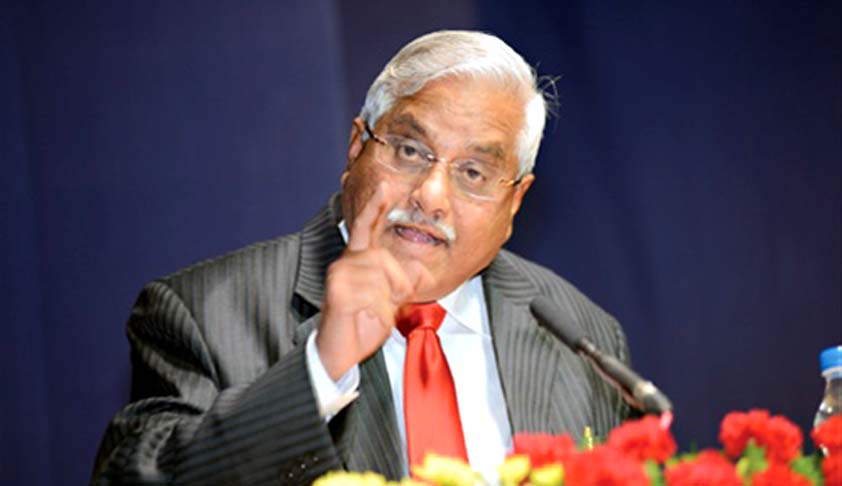Justice Gopala Gowda: A People’s Judge
Mohit Sharma
6 Oct 2016 8:22 PM IST

Justice V Gopala Gowda who retired yesterday from the Supreme Court is known for his strong views and conviction on issues touching the weak and poor. His judgments reflect his strong character, pro-people decisions and exceptional legal acumen.
- Singur land acquisition case: The most recent one is the Singur land acquisition case, in which the Supreme Court quashed the acquisition of 1,000 acres of land in Singur given by West Bengal’s Left Front government in 2006 for Tata’s Nano project, concluding that it was “illegal” and proceeded ahead in “violation of law”.
- Velaxan Kumar v. Union Of India & Ors: Justice Gopala Gowda construed S.24(2) of the Right to Fair Compensation and Transparency in Land Acquisition, Rehabilitation and Resettlement Act 2013, to provide compensation to the appellant, who was aggrieved by the actions of the government that acquired his land in an arbitrary manner.
- Good Samaritan case: A Bench headed by Justice Gopala Gowda endorsed the January 21, 2016, notification issued by the Transport Ministry as a positive signal for a concerted effort to change the public’s attitude of turning away from helping a road accident victim to take him to critical medical care centre.The court said wide publicity should be given by the Centre and the ctates about the guidelines.
- State of U.P. v. Charan Singh: The judge reiterated the principle that Right to Life includes Right to Livelihood.
- Standard Chartered Bank v. Andhra Bank Financial Services Ltd. and Ors: It may be cases like this where the term "first learns", as provided under Art. 91(a) of the Limitation Act, 1963, was construed.
- Amanullah’s case: The concept of locus standi was construed.
- B.S. Yambem case: Justice Gopala Gowda construed Arts.77(3), 166(3) & 309 of the Constitution and demarcated a distinction between Arts. 77(3), 166(3) and Art. 309 of the Constitution. This distinction is even recently reiterated by the judge in Z.U. Ansari’s case, while giving a strong dissent.
- Devinder Singh & Ors. v. St. of Punjab through CBI: Section 197 CrPC was construed and guidelines for sanction of public servant was laid down by the Bench, which he was presiding.
- Mackinon Mackenzie and Company Ltd. v. Mackinnon Employees Union: While expounding the labour jurisprudence, it was held that since termination of employment is in breach or violation of the mandatory provisions of Chapter V-A or V-B of the I.D. Act, it is void ab initio in law and ineffective and suffers from nullity, in the eyes of law and in the absence of very strong and compelling circumstances in favour of the employer. The court must grant a declaration that the termination was non est and, therefore, employees should continue in service with full back wages and award all the consequential benefits.
- Jaya Biswal’s Case: The court held that the E.C. Act is a social welfare legislation meant to benefit the workers and their dependants, in case of death of workman due to accident caused during and in the course of employment should be construed as such.
- Jitendra Khimshankar Trivedi & Ors: The bench headed by Justice Gopala Gowda made use of powers given under Art.142 of Constitution of India in order to provide complete justice and enhanced the compensation of person concerned.
- Raj Kumar v. Director of Education & Ors: The Supreme Court upheld the validity of S.8(2) of the Delhi School Education Act,1973, which requires the managements of the private unaided schools to obtain prior government approval for disciplinary proceedings against its employees.
- Pooja Pal v. Union Of India & Ors: The bench headed by him observed that if the investigation is neither effective nor purposeful nor objective nor fair, it would be the solemn obligation of the courts, if considered necessary, to order further investigation or reinvestigation as the case may be, to discover the truth so as to prevent miscarriage of the justice. In that case the CBI was ordered to do de novo investigation in the interest of justice.
- Gulzari Lal case: While constructing S.32 of the IEA, 1872, the court held that a valid declaration maybe made without obtaining the certificate of fitness from a Medical Officer.
It is quite evident from the above judgments that he has always been the people’s judge. He has announced that he would always be available for public cause and would work for it during his retired life. He has always encouraged junior members of the bar and very simple in approach.
Mohit Sharma is a Lawyer practising in the High Court of Himachal Pradesh.
This article has been made possible because of financial support from Independent and Public-Spirited Media Foundation.
Next Story


